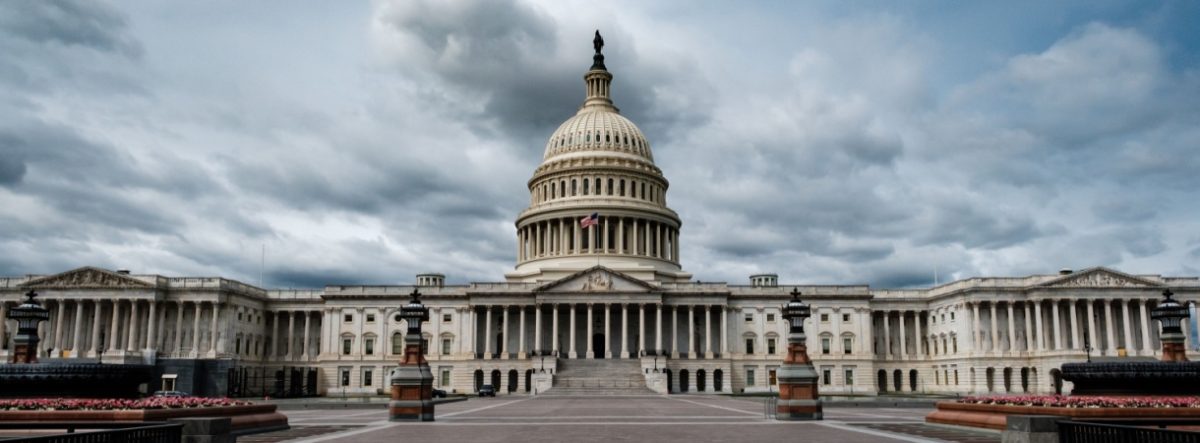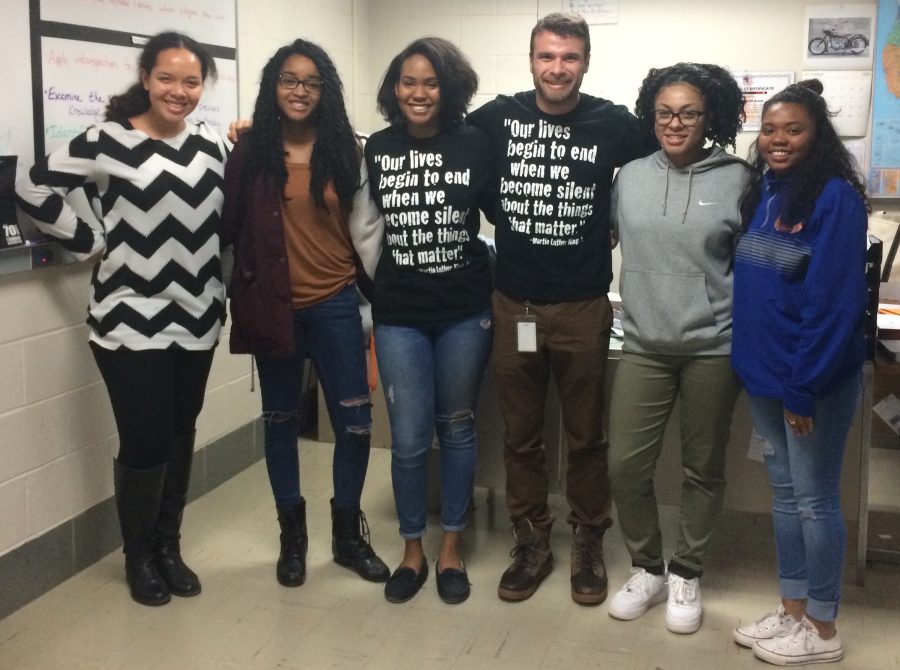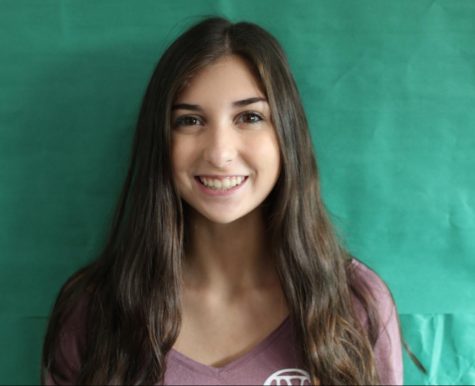Black Lives Matter Club seeks to educate
From left to right: Anna Adebambo (12), Joy-Anne Foster (12), Ashley Layton (12), Julian Shafer, Tyra Hodge (12) and Aaliyah Jeffries (12), all founders of the new club.
December 3, 2016
The Black Lives Matter movement has swept the nation, leading to the creation of 38 chapters in the US and Canada– the newest being right here at Danbury High School.
This new club, founded by senior Tyra Hodge– who is also the president — is based upon the national Black Lives Matter movement, which was created in 2012 following the shooting of an unarmed black man in Florida. George Zimmerman, a self-described neighborhood watch volunteer, was charged in the fatal shooting but acquitted.
The case was followed by instances across the nation — from Ferguson, Mo., to Staten Island, to Cleveland, to Milwaukee, to Baltimore and Baton Rouge — of white police officers involved in the deaths of unarmed black men and women. Most recently, the trial of a South Carolina police officer charged in the fatal shooting of an unarmed black man who was running away ended in mistrial.
These have been labeled police brutality cases. But Hodge says that the events surpass brutality. She calls for the labeling to be, “police shootings, they aren’t brutality, they’re the murder of innocent people.”
The club aspires to “spread awareness and bring everyone together,” says Hodge, adding that she wants “the problems going on right now” to be addressed. By that she also means incidents brought about by the election of Republican Donald J. Trump as president-elect.
During rallies, Trump continually made what many heard as discriminatory and racist comments directed toward immigrants, Muslims, women, blacks and those of LGBTQ+ sexual orientation. Since his victory, law enforcement agencies and even schools across the country have reported incidents of violent or threatening acts by Trump supporters toward these groups.
Co-treasurer of the club, Iman Farah, says that people take these hate-driven actions “as a joke,” which drives the initiative of the club to educate their peers.
Hodge says, “They,” as in those acting violently toward others, “think it’s OK now, because of Trump.”
She, however, doesn’t let this negativity keep her, and the rest of the members of the Black Lives Matter club, from fighting for their beliefs.
Hodge adds, “It just makes our movement that much more important; we’re going to get hate, of course, but we’re not going to let that stop us from proving to everyone how 100 percent wrong these actions are.”
Farah says that the best act that can be done is “educating people” about the current issues and the morally-faulted aspects of them.
It is this desire to make a difference in their community that led the group of girls — including secretary Anna Adebambo, co-treasurer Joy-Anne Foster, and vice president Aaliyah Jeffries, along with Hodge and Farah — to reach out to Julian Shafer, an AP Government and Politics and Civics teacher, to advise the club.
Hodge had Shafer as a teacher last year for Civics. It was then that she realized, “that he believed in feminism and he is a strong advocate for Black Lives Matter.”
She says, “this was amazing to me because none of these issues directly affect him, but he is still so strong about it and I found that to be a wonderful opportunity to make him our advisor.”
In the founding of the club, the group aligned itself with the national BLM agenda. This calls for, “the affirmation of the lives of black, queer and trans folks, disabled folks, black-undocumented folks, folks with records, women and all black lives along the gender spectrum,” as said by the official Black Lives Matter website.
“In making our group,” says Hodge, “we took ideas from them and reflected it to what we want to do.”
Hodge said that their efforts, though, were more centered toward DHS itself and making equality a more prominent part of school. The school is home to 3,000 students, with more than 40 languages spoken.
Adebambo adds they want to “continue the movement,” making the Black Lives Matter Club a permanent addition to the DHS community.
The team wants this to last for years to come. “We don’t want this to be a one-year thing,” Foster says. “We want this to go on.”
They want the belief in equality for all races, genders, and sexual orientations to become something that is a norm, here at school, and everywhere, forever.
The group, however, has been facing some opposition from students who believe that the movement is racist in nature and advocating a statement that black lives matter over those of other races.
But Jeffries says, “We do agree that all lives matter, but in the media, what we see, is people getting away with killing African-Americans.”
They say that at the moment, the races that are in danger are people of color. Therefore, the group as a whole is meant to draw attention to this fact, as they say it is not getting the attention that they deserve.
As Foster says, “All lives can’t matter until black lives matter.”




















